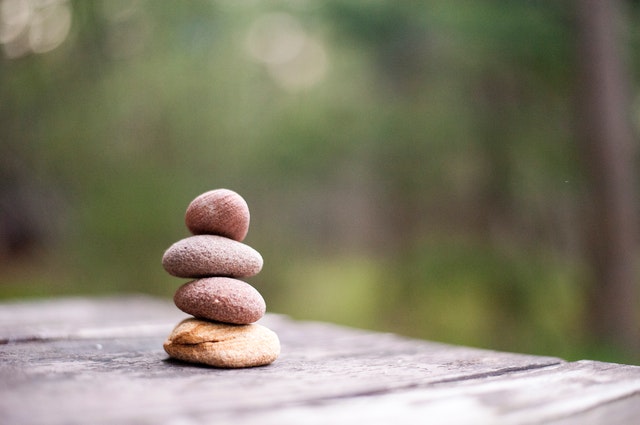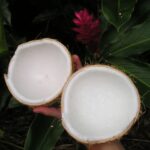What are the benefits (if any) of kava for stress? According to the World Health Organization, stress is the health epidemic of the 21st Century. In fact, the WHO said that about 322 million people suffered from some form of anxiety or depression in 2015. Moreover, stress can be the cause of other illnesses such as depression and anxiety to name a couple. That’s why this condition must not be taken lightly.
Although there are many prescription medicines to treat stress, some people prefer to use natural alternatives to help alleviate their symptoms, especially if they are not too severe. Some of the most popular are valerian root, passion flower, or lemon balm. Also, kratom and kava have become very popular in later times among many people dealing with stress. In this article, we’ll explore kava for stress and how it can help relieve symptoms of stress.
What is Stress
Most of us have heard about stress, and in fact, many of us have experienced it ourselves. But what is exactly stress? Stress is a physical reaction that a person experiences when he or she suffers from a state of nervousness or worry. This nervousness can be a reaction to different situations, such as problems at work or work overload, traumatic situations, etc.
There are various types of stress:
- Normal stress: A small amount of stress is perfectly normal and can help us deal with difficult situations.
- Chronic stress: feeling severe stress for a long period of time can cause psychological and physical problems. This type of stress can lead to depression.
- Post-traumatic stress: This type of stress typically happens after a traumatic or terrifying situation, such as an accident or a natural disaster. Although anyone can suffer this type of stress, children are especially prone to suffer from it.
- Workplace stress: This is probably the major source of stress nowadays. It happens when there is a conflict between job demands on the employee and the amount of control he or she has over meeting these demands. This type of stress can lead to a condition known as burnout syndrome.
Causes of Stress
There is not one single cause of stress. There are many situations that can cause us stress. Some of the main causes of stress include:
- Money problems
- Family problems
- Work overload
- Job demotivation
- Sickness
- Personal relationships
- Uncertainty
- A death in the family
- Exams
- Lack of time
The above are just examples, but any kind of troubles in life can lead to a stressful situation.
Symptoms of Stress
Stress can cause many symptoms, and people can feel stress differently. Symptoms of stress can be physical, emotional, or cognitive:
Stress physical symptoms include:
- Low energy
- Headaches
- Insomnia
- Stomach problems
- Nausea
- Chest pain
- Fast heartbeat
- Ear buzzing
- Loss of libido
- Loss of appetite
- Weight loss
- Dry mouth
Typical stress emotional symptoms are:
- Frustration
- Agitation
- A feeling of losing control
- Uneasiness
- Low self-esteem
But stress can also have cognitive symptoms, including:
- Constant worry
- Ruminating
- Fast thoughts
- Lack of organization
- Memory loss
- Procrastination
- Pessimism
Moreover, stress can lead to other serious situations such as alcohol and drug abuse.
Consequences of Stress
As we have seen, stress can be a serious problem and can lead to more serious conditions and illnesses. In fact, stress is the main cause of illnesses such as anxiety and depression. But can kava kava for stress help?
When we feel stressed, our heart rate, blood pressure, and respiratory frequency increase. This is our body’s normal response to an external threat. So, when this situation lasts for long periods of time, our body consumes too much energy. Some think that this can cause physical illnesses like heart problems, chronic fatigue, and propensity for infection, although there is not enough evidence of this.
Nevertheless, stress must not be taken lightly, and you should seek help if you feel stressed for long periods of time.

What is Kava?
Kava or Piper methysticum is a plant from the pepper family, native to the South Pacific islands. The plant owes its properties to the kavalactones that are present in its roots. These kavalactones have a neuroprotective effect, as a recent study shows.
Since ancient times, the native population of the South Pacific islands has drunk a decoction of kava root to calm and relax. Therefore, we could think of using kava for stress.
Moreover, some studies performed under medical supervision have shown how kava helped to improve the mood and the memory in subjects after four weeks.
However, consider that, although kava is a fairly safe plant, you shouldn’t use it if you suffer from liver problems. Also, people that suffer from alcoholism shouldn’t drink kava as it can damage their liver. Finally, pregnant women and people who suffer from Parkinson disease shouldn’t use kava.
But could we also talk about the benefits of kava for stress? Let’s find out below.
Kava for Stress
Although kava is not specifically purposed to treat stress, it can effectively combat anxiety, one of stress’ main symptom. And, though there is not enough evidence, early research shows that a single dose of kava can help relieve symptoms associated with mentally stressful tasks.
To relieve anxiety, the average dose would be 100-200mg of kavalactones per day divided into three doses. When dealing with a stressful situation, drinking a kava tea can relieve the symptoms.
Finally, remember that you shouldn’t use kava if you are taking anti-anxiety or sedative medicines as the interactions between them might be potentially dangerous.
How to Take Kava for Stress?
There are different formats of kava in the market, the most popular are kava capsules, kava tincture, and kava powder.
To relieve stress, you can prepare a tea using kava powder. In order to do so, brew your dose into hot water and add milk or honey to improve the flavor.
Finally, remember that you should pay attention to the kavalactone concentration before preparing your kava tea. Whilst some supplements show a milligram amount of kavalactones, many show it as a percentage. In this case, you’ll need to calculate the milligram amount per serving. For instance, a supplement that shows a 30% kavalactone concentration, will have 30mg of kavalactones for every 100mg of product.



